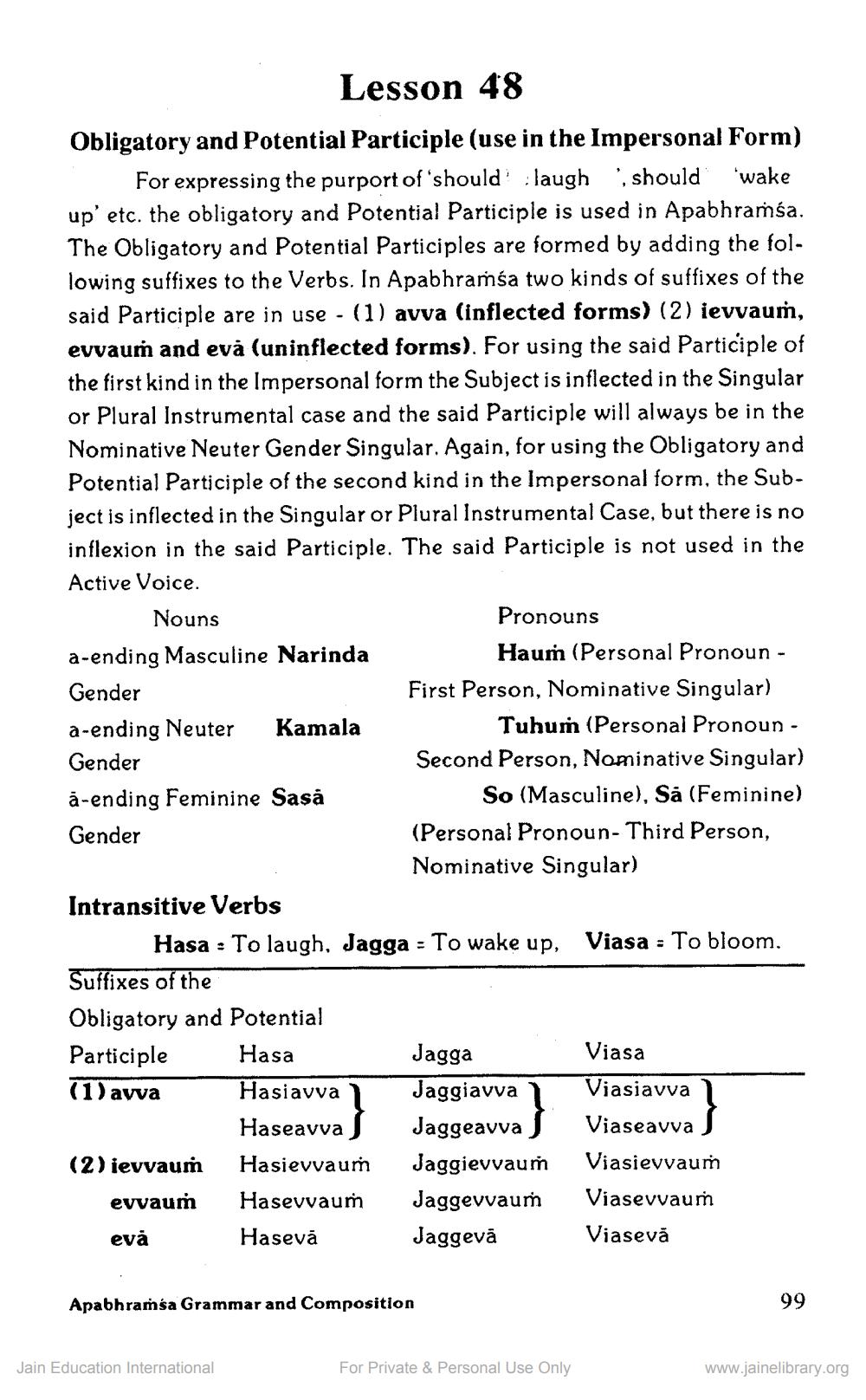________________
Lesson 48 Obligatory and Potential Participle (use in the Impersonal Form)
For expressing the purport of 'should laugh ishould wake up' etc. the obligatory and Potential Participle is used in Apabhramśa. The Obligatory and Potential Participles are formed by adding the following suffixes to the Verbs. In Apabhraṁsa two kinds of suffixes of the said Participle are in use - (1) avva (inflected forms) (2) ievvaum, evvaum and evå (uninflected forms). For using the said Participle of the first kind in the Impersonal form the Subject is inflected in the Singular or Plural Instrumental case and the said Participle will always be in the Nominative Neuter Gender Singular. Again, for using the Obligatory and Potential Participle of the second kind in the Impersonal form, the Subject is inflected in the Singular or Plural Instrumental Case, but there is no inflexion in the said Participle. The said Participle is not used in the Active Voice. Nouns
Pronouns a-ending Masculine Narinda
Hauṁ (Personal Pronoun - Gender
First Person, Nominative Singular) a-ending Neuter Kamala
Tuhum (Personal PronounGender
Second Person, Nominative Singular) ā-ending Feminine Sasa
So (Masculine), Sa (Feminine) Gender
(Personal Pronoun- Third Person,
Nominative Singular) Intransitive Verbs
Hasa : To laugh, Jagga - To wake up, Viasa - To bloom. Suffixes of the Obligatory and Potential Participle Hasa
Jagga
Viasa (1) avva Hasiavva Jaggiavva Viasiavva Haseavva
Jaggeavvas Viaseavva S (2) ievvauṁ Hasievvaum Jaggievvauń Viasievvaum
evvauṁ Hasevvauí Jaggevvauṁ Viasevvaum eva Haseva
Jaggeva Viasevă
Apabhramsa Grammar and Composition
99
Jain Education International
For Private & Personal Use Only
www.jainelibrary.org




